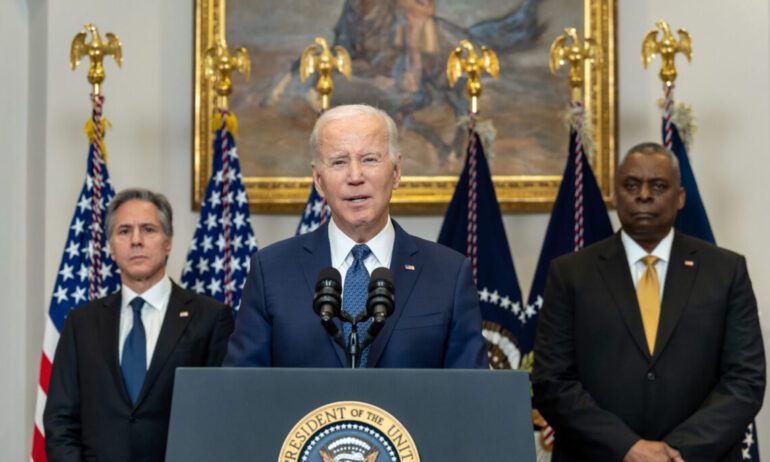TL;DR:
- President Biden is set to sign an executive order addressing AI risks.
- The order will impact various sectors, including healthcare, education, trade, and housing.
- It highlights the potential benefits and risks of AI technology.
- Government agencies will establish data privacy and other AI standards.
- Previous White House efforts to regulate AI have faced criticism.
- A White House AI Council will oversee federal AI activities.
- The order grants the White House authority over private sector AI development.
- Companies will be required to submit reports on model training, testing, and technology protection.
Main AI News:
President Biden is poised to enact a transformative executive order that will reshape the landscape of artificial intelligence (AI) regulation, as reported by Politico. Expected to be unveiled as early as Monday, this order promises to usher in a new era of AI oversight, with far-reaching implications for sectors ranging from healthcare to education, trade, and housing.
In a draft obtained by The Hill, the order underscores the pivotal role AI plays in our society, recognizing its potential for both progress and peril. It states, “Artificial intelligence (AI) has extraordinary potential for both promise and peril. Responsible AI use has the potential to help solve urgent challenges, making our world more prosperous, productive, innovative, and secure. At the same time, irresponsible use could exacerbate societal harms like fraud, discrimination, bias, and disinformation.”
This landmark order is set to impose stringent controls on AI, instructing government agencies to establish robust standards to safeguard data privacy, among other key priorities, in this swiftly evolving technological landscape. While previous White House efforts to address AI have faced criticism, this new order empowers multiple agencies to shape the AI market.
Biden’s executive order represents the most substantial endeavor to bring order to the AI industry on a national scale. Despite congressional attempts to craft legislation addressing AI risks, no comprehensive framework has been introduced thus far.
According to the 111-page draft of the order, a dozen government agencies will be tasked with addressing their management of AI systems. These agencies will have varying timelines, spanning between 90 and 240 days, to fulfill the order’s requirements, as reported by Politico.
Additionally, the order will establish a White House AI Council, chaired by the White House Deputy Chief of Staff for Policy, and include representatives from major agencies to oversee AI activities across the federal government.
Furthermore, the order will bestow upon the White House the authority to monitor private sector AI development and compel companies to submit detailed reports on their model training and testing processes, as well as their strategies for safeguarding AI technology from foreign adversaries.
Conclusion:
President Biden’s executive order signifies a significant step in establishing comprehensive AI governance standards in the United States. This move aims to balance the potential benefits and risks of AI technology across various sectors while empowering government agencies to shape the evolving AI landscape. It also grants the White House increased oversight over private sector AI development, emphasizing the importance of responsible AI practices in the market.

